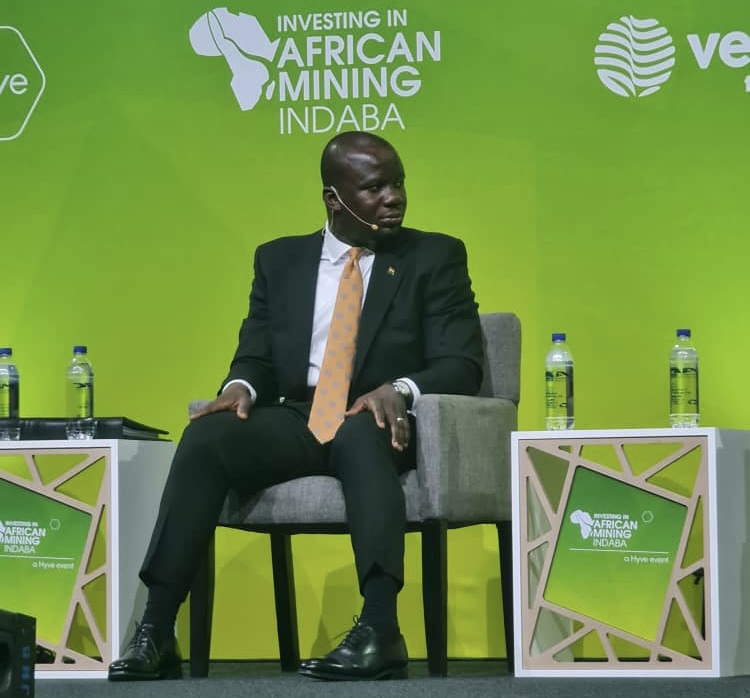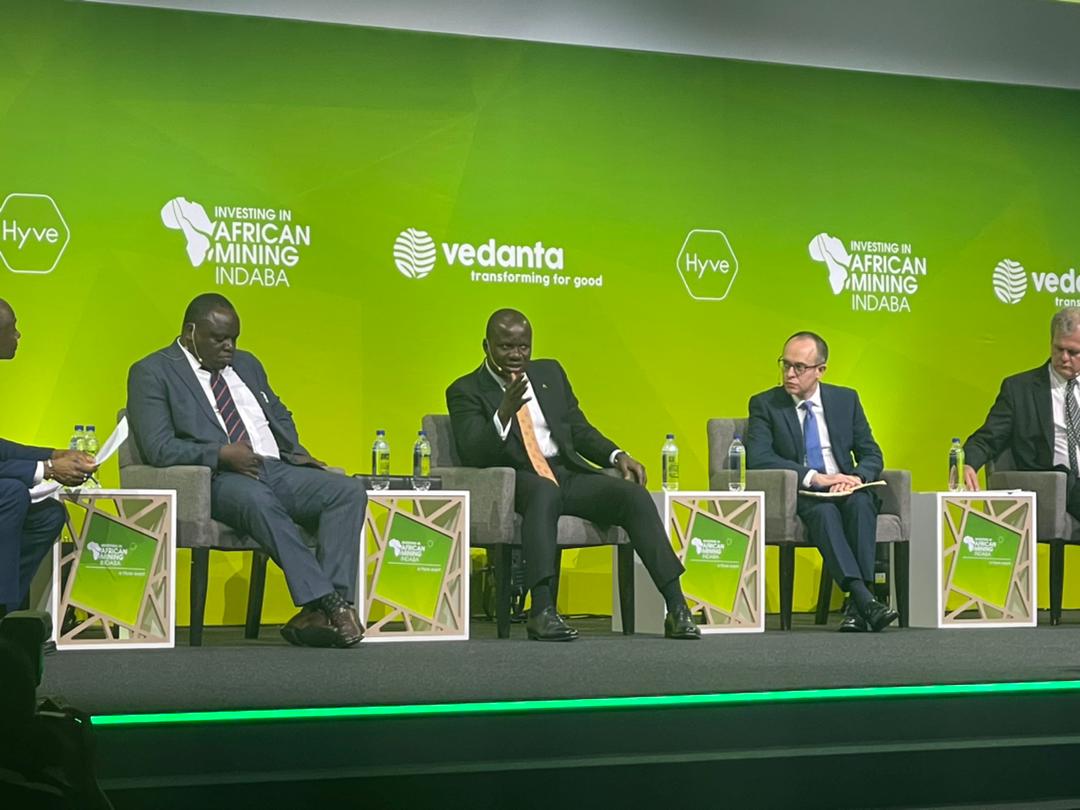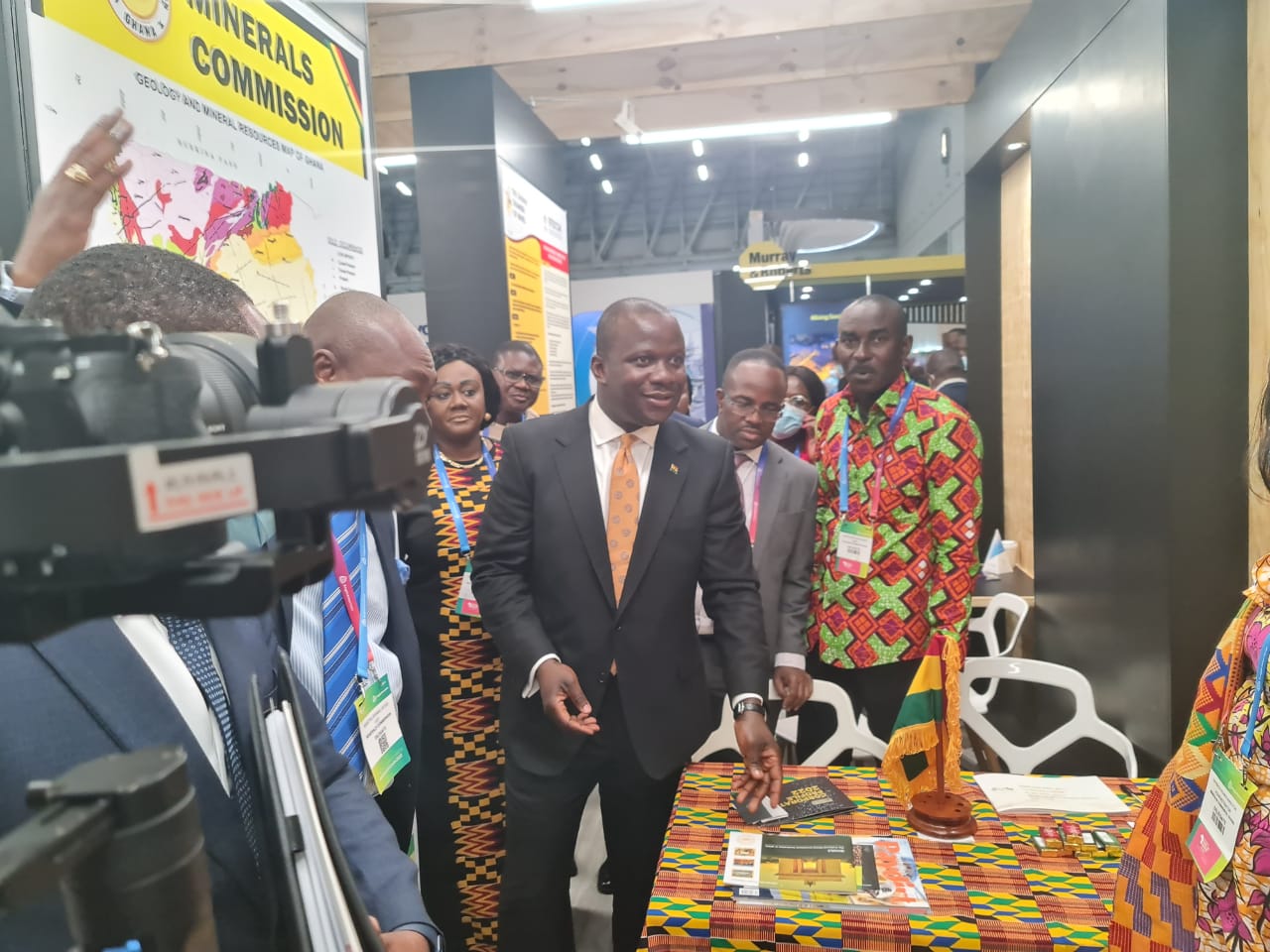
Africa needs strong policies on mining - Jinapor at Mining Indaba
The Minister of Lands and Natural Resources, Samuel Abu Jinapor, has made a case for a strong and functional policy and legislative framework that will guide and regulate the mining industry in Africa for accelerated growth.
Such a framework, the minister argued, must be transparent and trustworthy in character for the mutual benefit of the state, its citizens and investors.
He was speaking on the topic: "Resource Nationalism Challenge: How has the global pandemic shaped sovereign state views on resource nationalism and collaboration?" at the main plenary discussion of the global conference on the extractive industry, dubbed "Mining Indaba", currently underway in Cape Town, South Africa.
Other discussants at yesterday's session were Zambia’s Minister of Mines and Mineral Development, Paul Chanda Kabuswe, the Founder of Critical Resource, Daniel Litvin, and the Executive Director of EITI, Mark Robinson, with the Lead Mining Specialist, of the World Bank, Boubacar Bocoum moderating the session.

Mining Indaba
The global conference is the largest mining investment conference and exhibition in the world and has attracted all the key players in the industry worldwide.
Since 1994 when the first conference was held, Mining Indaba has been a significant platform in Africa– bringing together unique voices and perspectives, and supporting the sustainable development of the African mining industry by connecting it with leading investors and the global mining community.
Ghana’s perspective
Sharing Ghana’s perspective, Mr Jinapor said resource nationalism was at the heart of the mining industry and resource- rich countries and for that matter how to deal with the phenomenon was very consequential as experts and academics were still figuring out how to deal with the issue of resource nationalism.
In the view of the minister, at the policy level, it had become unfashionable lately to deal with the issue through outright expropriation, seizures, state controls and interventions.
Rather, he said, it had become more fashionable to use sophisticated tools of local content, indigenisation, tweaking of already established contracts and agreements and breach of contracts to deal with the problem.
He thus called for a careful balance to ensure that the resources of the state benefit the owners of the resource and at the same time is able to sustainably attract the needed capital, investment and technical knowhow.
“That balance was the biggest issue to deal with,” the Lands Minister opined.
Heart of matter
Touting Ghana’s democratic credentials, where democracy and rule of law were the norm rather than exception and democratic accountability was engrained, he said through the collaborative efforts of the Ghana Chamber of Mines, the framework for the mining sector was certain and clearly cut out.
“So if you are an investor in Ghana you are certain that you are investing in a country which is highly democratic where rule of law prevails and the sanctity of contracts are respected,” he proudly stated.
Mr Jinapor said Ghana had come up with a policy that ensures that both the investor and industry were protected for the effective business.
“At the heart of all this (resource nationalism) is the policy and legislative framework because that is where the problem arises; where you have policies cut out clearly and the legislative or statutory framework known to both investors and the state.
“Thus, if an investor is coming into a country, he or she will know the local content laws clearly, physical and the regulatory frameworks available so that the rules do not change in the middle of the game.
“With these two pillars of clear certain policy and legislative framework, we should be able to deal with this phenomenon which has become a major issue, he concluded.

Win-win policy
Zambia’s Minister of Mines and Mineral Development, Paul Chanda Kabuswe, for his part, said there was a thin line between resource nationalism and the benefit it accrued to the state and for that matter, the citizenry.
He said it was unfortunate that in most cases the citizenry did not see themselves benefiting from the national resource and, therefore, they resorted to illegal mining.
He said it was important for African governments to step in to reverse the trend because illegal mining could not be supported.
In line with this, he called on governments to also make sure that there was a win-win situation where resource benefited the people, and the policy benefited the investor.
“There is need for a win-win policy so that stakeholders around resources – state, citizens and investors — see and feel the benefits,” Mr Kabuswe emphasised.
Controversial debate
The Founder of Critical Resource, Daniel Litvin, was of the view that resource nationalism was a controversial debate which takes many forms globally, and pointed out that governments and companies are the root cause of the problem.
He said governments and companies were sometimes guilty of corruption and failed to generate enough benefits for the country’s needs.
“What we need is much more trustworthy policies and agreement that will be beneficial to all parties,” he opined.
The Executive Director of EITI, Mark Robinson, said his institute was developing a data of information to help guide resource nationalism and help gain trust and have beneficial ownership.
